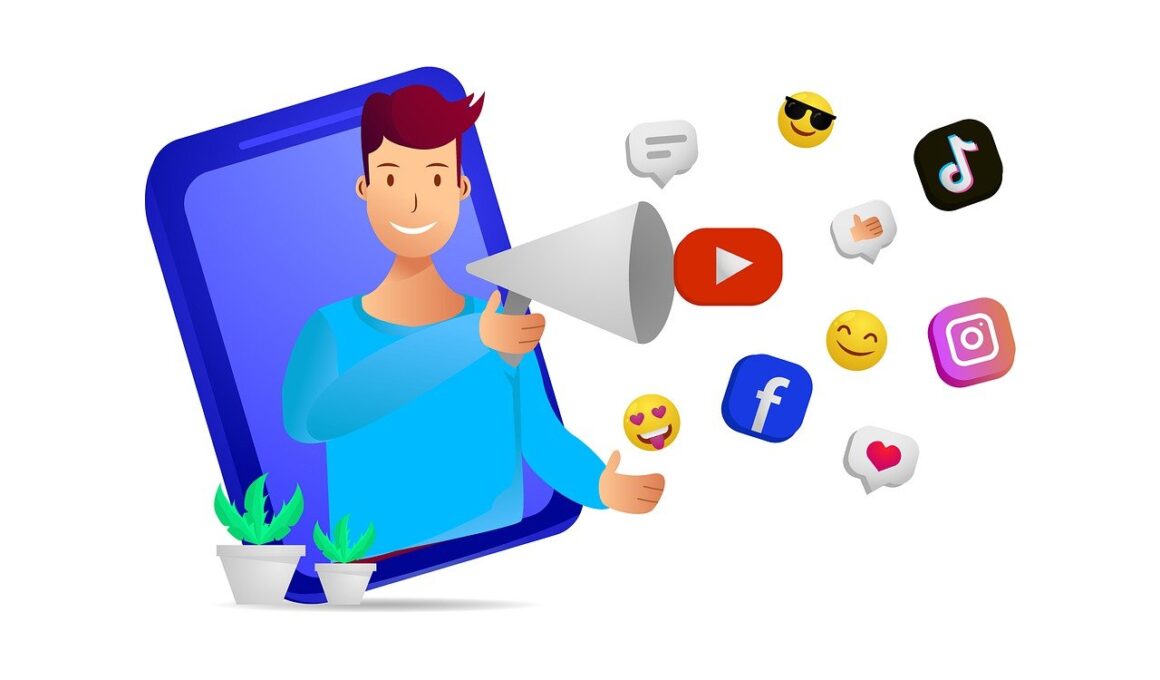The Role of Influencers in Event Marketing Collaborations
In recent years, the dynamic landscape of event marketing has been revolutionized by the emergence of influencers as key collaborators. Brands are now leveraging the reach and impact of these social media personalities to enhance their events. Influencers possess the ability to captivate audiences, engage communities, and amplify messaging in ways traditional marketing can no longer achieve. Their followers often view influencers as relatable, trustworthy sources, which strengthens the brand’s credibility. Moreover, event partnerships with influencers can lead to increased attendance, heightened interest, and enhanced brand recognition. By strategically aligning with influencers who resonate with target audiences, event marketers can tap into new demographic segments while benefiting from authentic endorsements. This growing trend demands a nuanced understanding of influencer branding dynamics and partnership strategies. As event marketing evolves, so too must the approaches taken towards collaborations with influencers. Utilizing their personal narratives and connections to generate buzz around an event can create a sense of exclusivity and excitement, ultimately driving more significant results. Influencers thus play a pivotal role in not just promoting the event but in enhancing overall brand engagement.
When considering the selection of influencers for event collaborations, multiple factors should be taken into account. Brands must look for personalities who not only align with their values but also authentically connect with their target demographics. This goes beyond mere follower counts; engagement metrics and audience interests are crucial. An influencer with a smaller, yet highly engaged audience might yield better results than one with millions of followers but low interaction. Once suitable influencers are identified, nurturing a positive relationship is essential. This can involve inviting them to participating events ahead of time, allowing them to experience the brand firsthand, fostering genuine endorsements. Furthermore, clarity in expectations and responsibilities for both parties should be established from the onset. Utilizing contracts or formal agreements ensures that influencers understand the requirements and the desired outcomes. Participation in brainstorming sessions can also empower influencers to co-create content and marketing strategies, further promoting their engagement. They can bring fresh perspectives to the marketing campaign while resonating with their audience. This collaborative approach fosters authenticity, which is increasingly vital in today’s marketplace.
Creating Compelling Content with Influencers
Content creation is an integral aspect of influencer partnerships, particularly for events. Influencers excel in storytelling, allowing brands to showcase their events in an engaging way through various formats. High-quality visuals, videos, and behind-the-scenes clips can capture the essence of the experience, making audiences feel like they are part of the action. Brands should leverage the influencers’ unique styles to enhance content authenticity, showcasing live event coverage that resonates with their established voice. Hashtags, live streams, and interactive posts during the event can generate real-time engagement with audiences. This not only boosts event visibility but drives user-generated content, further amplifying the event’s reach. Brands can encourage attendees to post their experiences online, creating a buzz that extends well beyond the event itself. By actively engaging with audiences in real-time, brands can also foster a sense of community and belonging among participants. The content can be repurposed for marketing materials even after the event concludes, extending the campaign’s lifespan. Influencers, therefore, serve as content creators that provide unique insights and behind-the-scenes perspectives, enriching the overall marketing strategy.
Furthermore, the partnership with influencers extends the opportunity for creative collaborations that can redefine brand narratives. For example, co-hosting an event or providing a platform for influencers to engage with their audiences can create unique experiences that traditionally wouldn’t be viable. These collaborations can take various forms, such as hosting a live Q&A session or offering exclusive previews of upcoming products or services. Such interactions can offer intimate experiences to audiences while enhancing the influencer’s value and authority within their niche. It is essential to ensure that the collaborations remain genuine and resonate with both the brand’s values and the influencer’s personal style. Providing influencers with creative freedom to express their perspectives can amplify engagement and enhance the authenticity of the collaboration. Additionally, brands can implement cross-promotion strategies that allow influencers to share content on multiple platforms, broadening reach. An effective partnership should center around mutual benefit, ensuring that both the influencer and the brand derive value and gain visibility through their collaborative efforts while creating a memorable experience for attendees.
Measuring Success in Influencer Partnerships
As with any marketing strategy, measuring the success of influencer partnerships in events is crucial. Metrics such as engagement rates, reach, attendance figures, and audience feedback are vital in assessing effectiveness. Monitoring social media analytics allows brands to glean insightful data about how the audience is interacting with influencer-generated content. Tools and platforms that track mentions, hashtags, or interactions can provide valuable insights into the overall impact of an influencer’s promotion. It is also beneficial to gather qualitative data through post-event surveys or feedback sessions with attendees. Understanding audience perception can help brands refine their strategies for future events. Furthermore, brands can analyze how influencer-driven content contributed to specific goals, such as lead generation or ticket sales. All these measurements paint a clearer picture of the partnership’s ROI and determine whether the collaboration met its objectives. Adjusting strategies based on this analysis aids brands in honing their influencer partnership strategies for maximum effectiveness. Gathering data from multiple sources ensures a comprehensive understanding of the overall impact of influencer collaborations on event marketing efforts.
To optimize the influence of partnerships, post-event collaboration can be considered. Continuously engaging with influencers after the event fosters long-term relationships that extend beyond single events. Shared success stories and continued brand affiliation can be mutually beneficial for both brands and influencers in future marketing endeavors. This ongoing collaboration provides opportunities for generating content that transcends the confines of a singular event. Recapping the event with highlights and testimonials can keep the conversation going, reigniting interest amongst audiences. The influencer’s stories can spark discussions and further promote the brand across social platforms. Additionally, leveraging feedback from the influencer allows brands to improve their future event marketing strategies continuously. In essence, influencers become more than just promotional assets; they transform into engaged partners in the overall brand journey. Effective long-term collaborations will amplify the core message, ensuring that brands maintain momentum in audience engagement across an entire calendar year. This ongoing narrative helps integrate the brand’s message into the influencer’s content and audience, fostering a deeper connection.
The Future of Influencer Collaborations in Event Marketing
As the event marketing landscape continues to evolve, the role of influencers will likely expand further. New platforms and technologies offer unique opportunities for engagement and interaction, prompting brands to adapt their strategies. The rise of virtual and hybrid events has created new possibilities for influencer collaborations that were not possible in traditional formats. Virtual events can engage a broader audience and emphasize influencers’ reach, while hybrid events can provide a blend of accessibility and exclusivity. This diversification prompts influencers to innovate continuously, crafting new strategies to maintain relevance amid shifting consumer preferences. Brands can work proactively with influencers to pioneer new methods of engagement and experiments with emerging technologies such as AR, VR, and interactive content formats. Incorporating influencers into the ideation phase offers unique perspectives and insights into the evolving landscape. As consumer behaviors shift, the ability to quickly adapt to these changes will determine the success of future partnerships. Effectively embracing the influencer marketing trend will create meaningful connections with audiences and foster loyalty as event marketing continues to achieve new heights.
Ultimately, influencer collaborations in event marketing are about building relationships and community. Brands must understand that engagement is not just about numbers but fostering authentic connections with consumers. By integrating influencers into their marketing strategy, brands can tap into their creative narratives, enabling a more personalized approach that elevates events. The most successful events will be those that engage their audiences on a deeper level, bridging the gap between the brand and consumers effectively. In conclusion, influencers play a significant role in transforming event marketing dynamics, creating compelling experiences that resonate. These collaborations offer tremendous potential when approached with creativity, strategic thinking, and genuine partnership efforts. Engaging with influencers can create vibrant marketing campaigns that not only attract attendees but sustain interest long into the future. As event marketing continues to evolve, brands that authentically collaborate with influencers will likely succeed. Ultimately, it is a collaborative effort that brings about innovation, engagement, and lasting connections between the brand and its audience.


